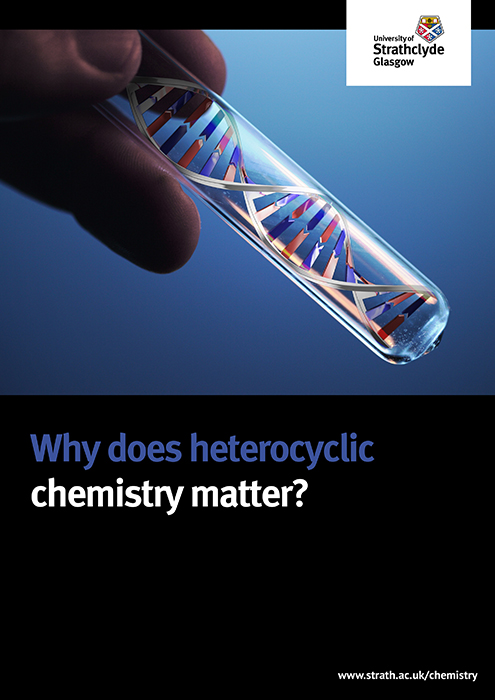Professor Colin J Suckling of University of Strathclyde explores the reasons why Heterocyclic Chemistry matters in the world today
The field of science known as Heterocyclic Chemistry is the subject of this compelling e-book, which is packed with insights from a seasoned professional in the field. Not only do we discover exactly what Heterocyclic Chemistry is, but we also find out that there are many examples of it around us that we witness every day. We also learn that the applications of this branch of science range from drugs to TV screens.
While Heterocyclic Chemistry can be intimidating to the novice, the author notes that life itself depends exquisitely on this specific branch of science – indeed biology as we know it today could not exist without heterocyclic compounds. An interesting application underlined by the author is fibre reactive dyes, which Suckling gives an expert perspective on. They provide colour fastness because the colour is chemically bonded permanently to the fibre, not simply absorbed as is the case with indigo and related compounds, Suckling reveals.
Changes in heterocyclic chemistry
We also learn that similar chemistry involving cyanuric chloride was once used to produce herbicides, but these are no longer licensed in the EU. Having said that, the author points out that the use of fibre reactive dyes and optical brighteners are still in use worldwide.
While the field of Heterocyclic Chemistry has not changed during the last 50 years, Suckling asserts that heterocyclic chemistry is till an active and important area for research and technology in today’s world.
This e-book also lifts the lid on the work of Suckling’s colleague, Professor Peter Skabara, who is an expert in the design, synthesis and application of new organic semiconductors which have widespread applications. Added to this, several teams at the University of Strathclyde are actively developing new drugs using heterocyclic compounds. I hope that this e-book engages you, as you discover the promising future that this branch of science offers.


